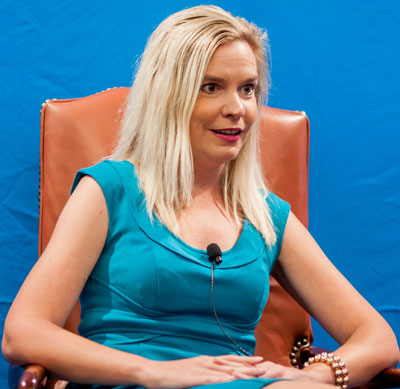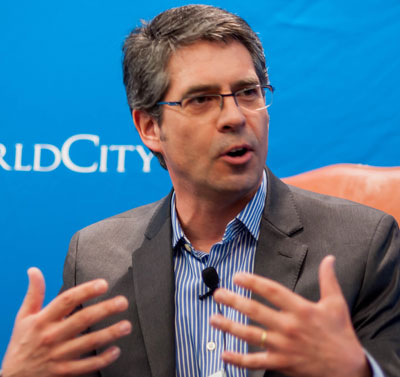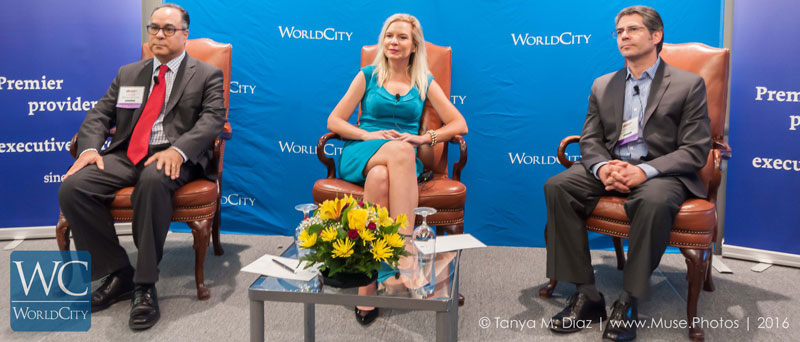HR: How best to leverage social media
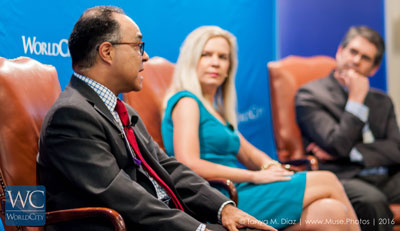 Millennials are streaming into the workforce just as social media has become a central instrument in the toolbox of every business. Human resource professionals often find themselves in the forefront of using social media for recruitment and retention, while helping craft policies that recognize how young employees use the technology.
Millennials are streaming into the workforce just as social media has become a central instrument in the toolbox of every business. Human resource professionals often find themselves in the forefront of using social media for recruitment and retention, while helping craft policies that recognize how young employees use the technology.
Examining these trends at WorldCity’s HR Americas Conference held Sept. 22-23, 2016, in Coral Gables were three academics (and practitioners): Luis Casas, managing director, executive education at IESE Business School – NYC; Nancy Richmond, HR professor in social media, personal branding and career management at Florida International University; and Eduardo Barros, author and HR professor at Universidad Adolfo Ibáñez. Their talk was titled, “Welcome to the Digital World (Whether You’re Ready of Not).”
Keep a digital mindset
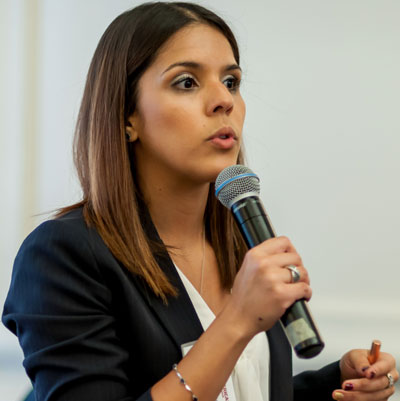 WorldCity CEO Ken Roberts first asked the audience to think of one word that describes the millennial generation. The replies: difficult, more adaptable, challenging, exceptional, connected, unpredictable.
WorldCity CEO Ken Roberts first asked the audience to think of one word that describes the millennial generation. The replies: difficult, more adaptable, challenging, exceptional, connected, unpredictable.
Now, consider the rise of social media.
“It’s not a trend, it’s a tsunami, we’re underwater already,” said Casas. “It’s important for HR managers not only to figure out the right talent, the company as a whole has to have a digital mindset.”
Meanwhile, the attitude of managers toward employees using social media – even at work — is changing as companies increasingly see social media as a way to recruit and for disseminating their culture and brand message.
Richmond said that when she was director of Career Management Services at FIU, she became expert in helping students build an online professional digital profile brand. “HR is scared of social media, one reason is that you can’t control the message,” she said. But HR can actually affect the process, “making sure profiles are the best possible,” and even having a LinkedIn photo booth at work. “Millennials want to have a voice.”
Leverage data from LinkedIn and beyond
Meanwhile, how to leverage social media to share a company’s story raises the question of whether firms are making use of the huge amount of data social media generates. In other words, are they using social media help better identify and reach the customer?
“As a consultant and professor, I don’t think so,” said Barros. “We have a big problem, a gap separating people and processes. We have a lot of information, but if you don’t use it well, it’s time and money lost.”
The problem of how to utilize information goes beyond social media, the panel said. “The challenge is that the business models are different. You can’t bring your analog mind, it’s more of a digital mindset,” Casas said.
Richmond noted that social media is quickly evolving, with younger users no longer using Facebook, but Instagram and Snapchat. “One thing I always say is that you have to learn by unlearning in the digital world,” she said. “Marketing is no longer about controlling the message. The employees are (already) out there.”
HR managers have to ask themselves if their employees’ postings reflect well on the company, showing that workers have the opportunity to grow and that the company is making a positive difference in the world. “This is very important to millennials,” she said.
Be authentic on social media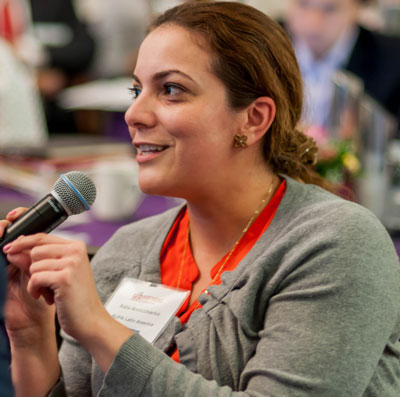
Audience members wondered how far companies can harness this for their own ends – for example, can they note in the company’s own postings the positive comments of employees on social media?
Proceed with caution, Richmond said. “One of the most important things is being authentic.”
Still, social media use has lead to a certain flattening of organizations. When CEOs and top management use social media – which they are encouraged to do — employees are allowed to, and even asked to, comment on such posts. “Millennials are pushing for decentralized culture,” Richmond said.
Millennials self-select, added Casas. “If they don’t like the company, they leave.”
Still, it doesn’t mean social media is the answer to everything.
“How many of you have had a nasty fight by email?,” asked Barros. “When you don’t have face-to-face, negative emotions get expressed faster and more extremely.”
Barros relayed how teaching assistants told him they hadn’t noticed within his e-mail information about a meeting. In response, he didn’t blame the students, but changed where in the message he put such information.
“We are all looking at information in a way that takes less time than it should,” he said.
WorldCity’s HR Americas Conference is the region’s premier HR event. It was sponsored by Caldwell Partners, Diversified Search, The RBL Group, Littler Global, IESE Business School, University of Navarra, Right Management, EWM Realty International, Adolfo Ibañez School of Management, América Economia and Altizer Performance Partners.
HR Connections is one of four event series organized by WorldCity to bring together executives in the greater Miami area on international business topics. The next HR Connections event is scheduled for Oct. 28.
